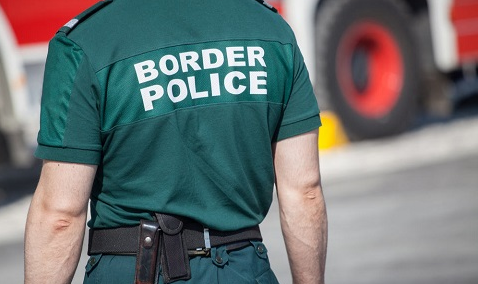Could the US Ban Entry for Canadians in the Marijuana Industry?
The marijuana industry in Canada is currently experiencing a business boom, thanks to the upcoming full recreational legalization. However, not everyone is happy about this long-awaited change: US border officials are considering banning entry for all Canadian citizens involved in the marijuana business, arguing that under US law, they are considered criminals.
Imagine this scenario: by early 2019, a Canadian resident develops a fertilizer formula that significantly improves the growth and quality of marijuana. By this time, the marijuana business is fully legal and regulated in Canada, allowing the inventor to patent the fertilizer and sell it commercially.
The product starts selling internationally, including in some US regions. However, despite the legality of their business in Canada, US authorities could blacklist this honest Canadian entrepreneur, permanently banning them from entering the country simply due to their connection to the marijuana industry. In fact, the ban could affect anyone even indirectly involved in the production or distribution of marijuana. Regardless of a clean criminal record or personal use, the Trump administration could decide to deny entry to these individuals, claiming they work in an illegal industry.
While US authorities have not yet officially implemented such strict restrictions, the Customs and Border Protection agency has already set several troubling precedents in recent years, causing concern among many Canadians who frequently travel south of the border.
Recent Incidents at the Border
The most recent incident involved the detention and blacklisting of an employee from a legal Canadian marijuana company. On July 10, Jay Evans, CEO of Keirton Inc.—a company that manufactures machines for cleaning and sorting agricultural products—was planning to drive from British Columbia into the US to meet with American business partners and discuss a new machine for processing industrial hemp. At the border, he was stopped by US customs officials, who had already placed him on a list of people permanently banned from entering the US.
“We hadn’t even released the prototype of the new machine, but I was already on the list of people permanently banned from entering the US because I was considered a ‘criminal’ due to my ties to the legal marijuana business,” Evans said in an interview. “Now, to appeal the ban, I’ll have to spend a fortune on immigration lawyers.”
“During questioning, I said I was going to Washington State for a business meeting and mentioned the machine for cleaning marijuana,” Evans explained. “That was probably enough for immigration officers to detain me for several hours and then deny me entry.”
“I clearly told the officers that the machines our company makes are only for processing industrial hemp,” Evans continued. “But that didn’t stop them from interrogating me for six hours about connections to the ‘underground business.’”
In the end, Evans and two colleagues traveling with him were sent back to Canada with a strict ban on re-entering the US.
Federal Law vs. State Law
It’s ironic that US customs officials—despite 30 states having legalized medical marijuana and 8 allowing recreational use—are imposing such harsh sanctions on people working for companies that don’t even deal with psychoactive forms of the plant. It’s important to note that states like Washington and Colorado have no power over these restrictions, as US federal law still classifies marijuana as a strictly prohibited substance.
If these hypothetical restrictions were applied to all workers and clients in the industry, more than 5 million Canadians could lose their right to enter the US.
Industry Growth and Economic Impact
According to Bloomberg, there are already 84 companies in Canada producing marijuana and freely trading their shares on the country’s stock markets. By the end of 2017, Canadians had spent about $5.7 billion in legal and gray-market marijuana stores.
Forbes reported in June that marijuana legalization is expected to create 150,000 new jobs in Canada by the first anniversary of the market’s opening on October 17.



